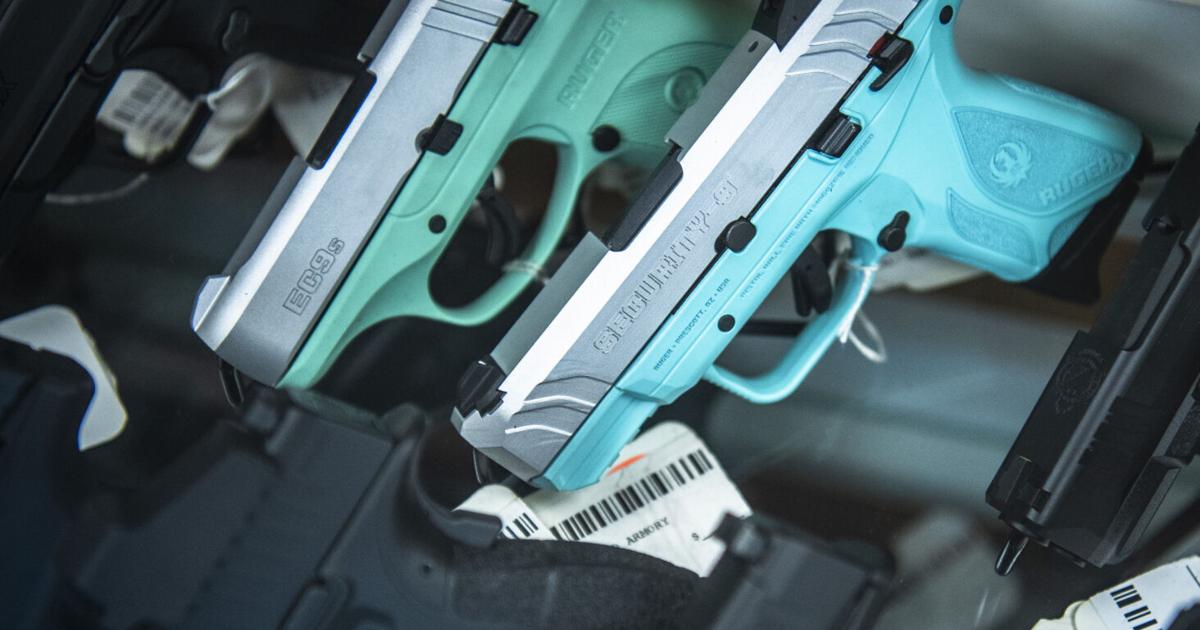Montana lawmakers are considering advancing a constitutional ballot referendum that, if approved by voters, would provide for “constitutional carry” of concealed firearms in the state.
House Bill 551 is carried by Rep. Casey Knudsen, R-Malta. It proposes amending the state Constitution’s language on the “right to bear arms.” Currently, the document states that any person may bear arms in defense of home, person and property, “but nothing herein contained shall be held to permit the carrying of concealed weapons.” HB 551 would strike that language and allow the carrying of a concealed weapon without a permit under the Constitution.
In order to amend the Constitution, HB 551 would need the votes of at least 100 legislators. It would then go on the 2024 ballot for voters to approve or vote down.
In 2021 the Legislature passed House Bill 102, which legalized the carrying of a concealed firearm without a permit statewide. While part of that bill dealing with university campuses was found unconstitutional, the remainder of HB 102 is in effect.
President of the Montana Shooting Sports Association Gary Marbut told the House Judiciary Committee on Wednesday that HB 551 would further increase the rights of firearm owners.
“We call it permitless carry because of this provision in the Constitution made it so we could not properly call what Montana has constitutional carry,” he said. “This is to move the ball another notch to change it from permitless carry in Montana to constitutional carry.”
Both Marbut and Knudsen testified that removing the language would strengthen gun rights, but also said the language may be rooted in post-emancipation racism.
“This amendment removes a historically racist, unnecessary line from a pretty bygone era that’s simply just not necessary any longer,” Knudsen told the committee.
The record of Jim Crow laws as they relate to firearms and racial disparity in restrictions has been documented and debated through academia and law. For example, in a 2020 U.S. Supreme Court filing the National African American Gun Association cited a history of Jim Crow gun control measures in arguing for a conceal carry law to be overturned in New York state.
Marbut said Montana’s language from the 1884 territorial Constitution was retained when the current Constitution was passed in 1972. The provision mirrors the Missouri Constitution of 1875, with a large number of people from Missouri coming to Montana at the time via the river system, he continued.
“One of the things I discovered was that in 1875 of course there was a lot of prejudice in Missouri, the Jim Crow laws were happening throughout the South, and I believe this measure was part of the Jim Crow laws that were circulating in the South to try and keep newly freed Blacks disarmed and submissive,” Marbut told the committee.
To illustrate his point Marbut then read from an essay by historian J.W. Smurr titled “Jim Crow Out West,” which detailed racism occurring in Montana in the mid to late 1800s. The passage included depictions of violence against African Americans, and he read one section that included a racial slur.
Other supporters of the bill made classic pro-firearm arguments, such as having a right to self-defense. A representative of the National Rifle Association touted the bill as legislation brining Montana law closer to the U.S. Constitution.
Rep. Braxton Mitchell, R-Columbia Falls, said that putting concealed carry in the Constitution would ensure that should Republicans lose their current strong majorities, that Democrats could not simply repeal HB 102 in the future.
Opponents of the bill were members of Gun Owners for Safety, led nationally by former Arizona Rep. Gabbie Giffords, who was critically injured in a 2011 shooting spree.
Nick Gevock and Shani Henry, speaking for the organization, said the bill risked pushing firearms into the hands of those that should not be legally allowed to carry them.
“We’re proud gun owners and we also understand we can support the 2nd Amendment while also taking common sense steps to protect our families, our communities and our state,” Gevock told the committee.
When asked about the trajectory of relaxing concealed carry restrictions in Montana, and whether delegates of the 1972 Constitution debated the language proposed for striking in HB 551, Knudsen said that based on his research, the delegates simply elected to keep the territorial language. He said he would have to do more research into whether the framers indicated any other intent when asked if the framers intended to keep the language to avoid a “completely open” concealed carry policy. He added that he did not believe the bill would create a wide-open scenario, citing current laws regulating firearms.
At the end of Wednesday’s meeting, the committee debated the appropriateness of using a slur when taken from a direct quote in a historical document.
“During our first hearing this morning, there was a word used into the microphone, a racial slur, and I want to acknowledge right up front it was part of a quote, a historical quote being read and I do recognize that, but nonetheless I think it’s worth saying on the record language like that doesn’t add to our proceedings. It really has no place in the room and I just want to urge us all to be really thoughtful and careful about that sort of thing moving forward,” said Rep. SJ Howell, D-Missoula.
Rep. Brandon Ler, R-Savage, who was chairing the committee, replied, “I agree that derogatory words should not be used but in historical contexts I believe sometimes history is ugly and the ugliness of history sometimes has to be stated.”
Minority Leader Kim Abbott of Helena then encouraged that the term could be described as “a racial slur that was used in the time period,” and that there are other ways to make points, to which Ler replied “Absolutely.”
The committee did not take immediate action on the bill.
Tom Kuglin is the deputy editor for the Lee Newspapers State Bureau. His coverage focuses on outdoors, recreation and natural resources.

